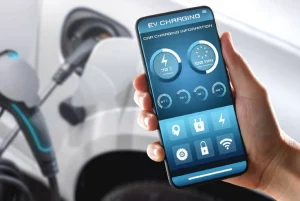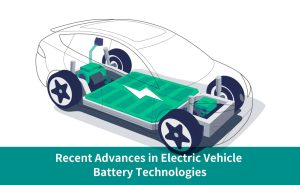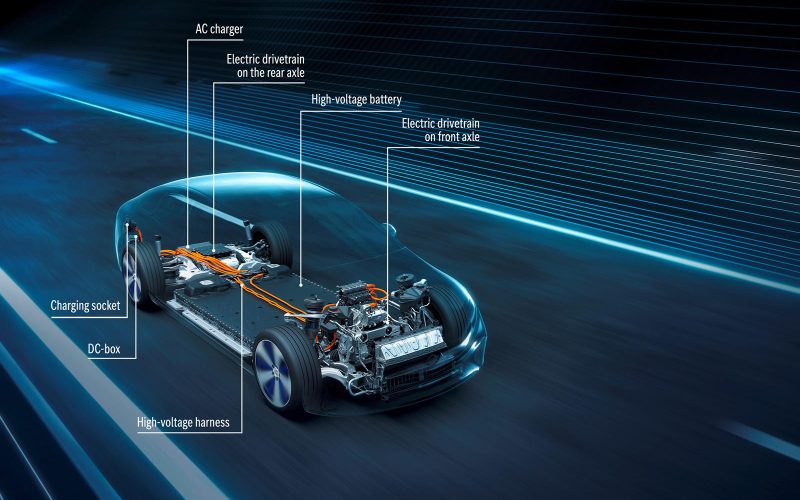Introduction:
With the growing popularity of electric vehicles (EVs), ensuring the longevity and sustainability of their batteries has become a crucial aspect. Extending the electric vehicle battery life not only enhances the driving experience but also contributes to environmental sustainability by reducing waste and energy consumption. In this comprehensive guide, we delve into various strategies and tips to maximize the lifespan of electric vehicle batteries, promoting long-term sustainability in the EV industry.
Understanding Electric Vehicle Batteries
Electric vehicle batteries are the heart of electric cars, storing and supplying energy to power the vehicle. These batteries are typically made of lithium-ion cells, which offer high energy density and efficiency.

What are EV batteries made of?
EV batteries consist of lithium-ion cells, electrolytes, separators, and various electrodes. These components work together to store and release energy efficiently.
How do EV batteries work?
During operation, EV batteries undergo a chemical reaction where lithium ions move between the electrodes. This process generates electrical energy, which powers the vehicle’s motor.
Factors Affecting Battery Lifespan
Several factors influence the lifespan of electric vehicle batteries, including environmental conditions, usage patterns, and maintenance practices.

Environmental Impact
Extreme temperatures, humidity, and exposure to harsh conditions can accelerate battery degradation, reducing lifespan.
Usage Patterns
Frequent deep discharges, rapid charging, and prolonged periods of high temperatures can strain the battery, leading to premature aging.
Maintenance Practices
Regular maintenance, including software updates, cooling system checks, and capacity calibration, can prolong battery life and optimize performance.
Optimizing Charging Habits
Proper charging habits play a significant role in preserving battery health and maximizing lifespan.
Importance of Proper Charging
Following manufacturer recommendations for charging voltage, current, and frequency helps prevent overcharging and overheating, which can degrade battery cells.
Charging Dos and Don’ts
Avoid fast charging excessively and refrain from letting the battery reach full discharge frequently. Opt for gradual charging whenever possible to minimize stress on the battery.
Temperature Management
Temperature management is crucial for maintaining optimal battery performance and longevity.

Impact of Temperature on Battery Life
High temperatures accelerate chemical reactions within the battery, leading to faster degradation. Conversely, extreme cold can reduce battery efficiency and range.
Cooling and Heating Solutions
Integrated cooling systems and battery thermal management help regulate temperature fluctuations, preserving battery health in varying climates.
Regular Maintenance to Increase Electric Vehicle Battery Life
Regular maintenance is essential for ensuring the longevity and performance of electric vehicle batteries.
Importance of Maintenance
Scheduled maintenance, including battery inspections, coolant checks, and firmware updates, helps detect and address potential issues early, preventing costly repairs.
Routine Checks and Procedures
Performing routine checks on battery health indicators, charging cables, and cooling systems ensures optimal performance and safety.
Driving Practices for Electric Vehicle Battery Life
Adopting efficient driving practices can significantly impact electric vehicle battery health and longevity.

Efficient Driving Techniques
Avoid aggressive acceleration and braking, maintain consistent speeds, and utilize regenerative braking to maximize energy efficiency and minimize battery strain.
Avoiding Extreme Conditions
Limit driving in extreme weather conditions and avoid exposing the vehicle to prolonged periods of extreme heat or cold, which can degrade battery performance.
Software and Firmware Updates to Increase Electric Vehicle Battery Life
Regular software and firmware updates are essential for optimizing battery performance and addressing potential issues.
Role in Battery Optimization
Software updates often include optimizations for battery management systems, enhancing efficiency, and extending battery life.
Importance of Staying Updated
Staying informed about the latest updates and installing them promptly ensures that your electric vehicle benefits from the latest advancements in battery technology.
Storage Recommendations for Electric Vehicle Battery Life
Proper storage practices are crucial for preserving battery health during periods of inactivity or storage.
Best Practices for Long-Term Storage
When storing an electric vehicle for an extended period, ensure the battery is charged to around 50%, store it in a cool, dry place, and periodically check the charge level to prevent deep discharge.
Preparing EV for Storage
Before storing the vehicle, perform routine maintenance checks, disconnect the battery if necessary, and follow manufacturer guidelines for long-term storage.
Upgrading Battery Technology for Increasing Electric Vehicle Battery Life
Advances in battery technology offer opportunities to upgrade existing electric vehicle batteries for improved performance and longevity.

Advances in Battery Technology
New battery chemistries, such as solid-state batteries and silicon anodes, promise higher energy density, faster charging times, and longer lifespans.
Considerations for Upgrading
Evaluate the cost, compatibility, and potential benefits of upgrading your electric vehicle’s battery technology, considering factors such as range, charging infrastructure, and environmental impact.
Extend Electric Vehicle Battery Life: Strategies for Long-Term Sustainability
Implementing effective strategies for battery longevity is crucial for ensuring the long-term sustainability of electric vehicles.
Effective Strategies for Electric Vehicle Battery Life Longevity
Regular maintenance, optimal charging habits, temperature management, and driving efficiency are key strategies for extending electric vehicle battery life.
Long-Term Sustainability Goals for Electric Vehicle Battery Life
By prioritizing battery health and implementing sustainable practices, electric vehicle owners can contribute to reducing carbon emissions and promoting environmental sustainability in the transportation sector.
FAQs
- How often should I charge my electric vehicle? It’s best to charge your electric vehicle whenever convenient, aiming to keep the battery level between 20% and 80% for optimal longevity.
- Can I leave my electric vehicle plugged in overnight? While leaving your EV plugged in overnight is generally safe, it’s advisable to avoid prolonged periods of overcharging to prevent unnecessary strain on the battery.
- Do extreme temperatures affect electric vehicle battery performance? Yes, extreme temperatures can impact battery performance and lifespan. High temperatures accelerate degradation, while cold temperatures reduce efficiency and range.
- Are software updates necessary for electric vehicle batteries? Yes, software updates are crucial for optimizing battery performance, addressing potential issues, and ensuring compatibility with the latest advancements in battery technology.
- How can I maximize the range of my electric vehicle? To maximize your EV’s range, practice efficient driving techniques, maintain optimal tire pressure, minimize use of HVAC systems, and avoid excessive acceleration and braking.
- Is it worth upgrading my electric vehicle’s battery technology? Consider upgrading your electric vehicle’s battery technology if it offers significant improvements in range, charging speed, and longevity, aligning with your long-term sustainability goals.
Conclusion
Ensuring the long-term sustainability of electric vehicles requires a proactive approach to battery management and maintenance. By implementing the strategies outlined in this guide, electric vehicle owners can maximize battery lifespan, optimize performance, and contribute to a cleaner, more sustainable future.










